Graham Reid | | 9 min read
Moana and the Tribe: Treaty
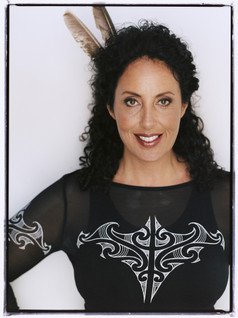
The view from Moana Maniapoto's Grey Lynn apartment is spectacular. Beyond huge
windows, which can be flung wide to offer the impression of floor-to-ceiling sky
is a vista across rooftops to the Waitemata Harbour beyond.
Outside the
front door is a pile of kids' basketball boots - the carpets have just been
shampooed - and inside tasteful artwork decorates the walls. In the office is
state-of-the-art film production gear.
Sitting on the window ledge in the
airy, elegantly minimalist lounge, Moana is laughing about how a television
interviewer wanted to set her up at the Avondale market to discuss her new
album, Toru.
She could be insulted by the subtext of that - Maori
musician means markets? - but it simply served to remind of the various
perceptions some have of her. To others, Moana is a Maori activist who does
music on the side, so when she released Toru she had to be careful in
interviews.
"Because people will say, 'While you're here what about this
issue?' At this point it's quite sensitive about the foreshore and I have very
strong views about it.
"But I'm not going to get dragged into it because
they are not going ask Dave Dobbyn or Bic Runga about those sort of issues. So
it does get a bit cloudy.
"But in a way those things feed my music, so it
isn't unnatural for them to ask. I haven't courted the media and they haven't
rushed out to me either, but I'm releasing this CD and I know I'm not going to
get much play on radio or tour so I need to put the focus on it somehow.
"So I use the media - and suddenly everyone is really interested in you
again," she laughs. "Gee, it's not like you're not doing anything in between
times."
In the five years since her last album - the vibrant,
hip-hop-influenced Rua, which featured the standout tracks Treaty and Moko -
Moana hasn't been kicking back looking at the view.
A month ago, she and
her partner Toby Mills picked up a television award for their documentary about
Nga Tamatoa founder Syd Jackson. They are working on another about Maori and
smoking.
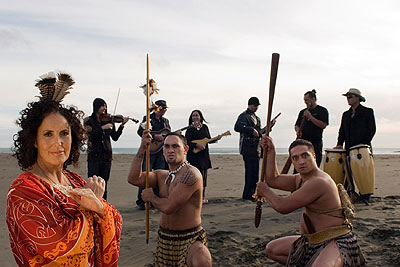 She's on the Music Export Council and is a founder member of the
Maori Music Industry Coalition, which is developing a national strategy for
getting more te reo on radio.
She's on the Music Export Council and is a founder member of the
Maori Music Industry Coalition, which is developing a national strategy for
getting more te reo on radio.
And she is just back from a two-month
European tour with her group The Tribe. In advance of it she pulled together a
compilation album of tracks from her previous albums and some now on Toru, and
with Mills and others has made an impressive video/doco DVD Live and Proud for
European release by the German company handling her interests there.
She
also completed Toru, which is predominantly in te reo and features taonga pouro
(traditional instruments) alongside cutting edge ambient-styled production. It
is her best album yet but she is resigned to the fact it will barely get on
radio because of the barriers against te reo.
She shrugs with almost
discernible weariness that the same old issue of language is having to be
addressed once more.
"I always hoped someone here would be more
pioneering at radio. Other commercial stations say, 'Oh, Mai should be doing
that' but that lot should shut up too because they haven't moved a muscle. NZ on
Air tried to make it as easy as possible with the iwi hit discs but it's just a
mindset no one can get out of.
"I used to get pressure on me to do
something that might fit on the radio, like a cover. To be successful in New
Zealand with the kind of music I do, those are the kind of variables I have to
think about when singing in Maori. I'm supposed to pander to New Zealand radio,
but in doing so you water down your point of difference for
overseas.
"Having spent the last three years looking at the international
market I've thought I'll just carry on and do what I like - which is what most
musicians do anyway - and see what happens.
"Kaupapa Maori music has the
biggest chance overseas because once you get over there, there are a million
groups who sound like some of our [pop and rock] artists here. That's not saying
they aren't fantastic, but there's just too much competition. Maori music has
that point of difference."
Moana and the Tribe's European tour has
confirmed and validated her belief in te reo Maori music. While she concedes the
inroads have been small, the group has established a reputation on the festival
circuit, performed at the opening of Whale Rider in Cologne, represented New
Zealand at the Olympic Festival of Sacred Song and Dance in Greece, and are
having their DVD and album distributed.
An acoustic outfit featuring haka
and taonga pouro, they stand out on the festival circuit.
"People lead
such busy lives and we come along singing about the land, identity and the
importance of language, and suddenly something else has entered their mindset
for a while.
"I used to have a big band but you couldn't hear yourself
think. Now we're very back-to-basics and that's different for them.
"At
some festivals there aren't a lot of women groups and not a lot talking about
social or political issues. And the reggae ones are slightly obsessed with
ganja."
With Toru, Moana and her various producers have pushed their
difference even further. Her singing in the moteatea style - in the manner of
laments - married to the kind of cool grooves she heard in Paris' famously
fashionable Buddha Bar, has created a fusion of contemporary and traditional
which has little in common with even other te reo albums.
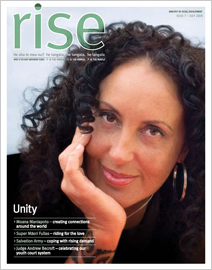 The origins of
the new style can be traced to a track on Tahi, where producer Angus McNaughton
pulled together a series of samples. She thought it was the best thing on the
album and when she and producer Neil Cruickshank explored the moteatea sound for
a track on Rua it confirmed a profitable and different musical
direction.
The origins of
the new style can be traced to a track on Tahi, where producer Angus McNaughton
pulled together a series of samples. She thought it was the best thing on the
album and when she and producer Neil Cruickshank explored the moteatea sound for
a track on Rua it confirmed a profitable and different musical
direction.
"So between Rua and Toru I wanted to explore that moteatea
style which I find haunting. Treaty is a lot more haka and strident. In some way
I was thinking more about radio and dance then, whereas moteatea is a hypnotic
way of singing, a real traditional way.
"It doesn't have choruses but
because I don't have any expectation of being played on the radio with Maori
language songs it doesn't matter.
"Iwi stations, George FM and a few
others will be supportive, as they've always been. There are songs on Toru which
would leap out from a format, but no one is going to be courageous enough to put
them on. Why don't they just test it?"
She shakes her head in disbelief
that teaching Maori in schools is still a controversial issue. "Kids in Europe
speak so many different languages. It's to our detriment that we don't because
everyone misses out on so much. It's what makes us unique.
"On the Music
Export Council I think we need to build local capacity, especially in kaupapa
Maori. But that's when it might go strangely silent. I've always believed Maori
music is best positioned to succeed overseas if the musicians can get
strengthened back here.
"If you hear music on the radio, that will
inspire musicians to write a certain way. So if we heard more Maori language
music it might up the ante in terms of production of Maori music songs. There is
a lot being produced but we need to be matching musicians with excellent
producers, that's a gap."
"Support networks and good business structures
are really important."
She bemoans the Idols programmes as telling young
people they have to sing in a particular way to be successful and says as long
as radio favours r'n'b and hip-hop, kids will see that as the route to success.
But beyond our shores competition in those areas is fierce. Kaupapa
Maori is our best shot, and she was annoyed that at the recent World Series
concerts before invited international guests there was no platform for kaupapa
Maori.
"And don't put us on with the hip-hoppers. Just because we are all
dark doesn't mean we are going to gel together on stage," she
laughs.
Just another mis-perception in Moana's world - she lives with the
contradictions, cliches and characterisations.
It isn't easy, and she
admits to being weary that some of the battles are the same as they ever were.
Touring takes it out of the band, which explains why, like Te Vaka, they are
seen less often here than in Germany.
So there's no official album
launch for Toru, little chance of it reaching radio, and not much in the way of
print interviews, because te reo doesn't make interesting copy for rock and pop
magazines.
While Moana can usually be counted on for a political position
guaranteed to grab a headline, she's understandably shied away from that
tactic.
And you won't see her filmed in a market.
Some days, despite the preconceptions, being Moana means just trying to be a musician. And that is not as easy as some think.
TORU REVIEWED
This third album - following Tahi and Rua - is a great stylistic leap for Moana, who here explores a very different style of singing and, with various producers (and co-writer Simon Holloway in places), moves towards a subtle and rewarding ambient feel discreetly coloured by loops and the use of taonga pouro (traditional instruments). Gone are the punchy hip-hop manoeuvres of the earlier Treaty or the thrilling speak-sing Moko from Rua, and in comes the spiritual and sensual moteatea singing style used in Maori folk songs and laments.
Add to that introspective and emotional form the low beats and ambient textures from synths, trickling acoustic guitars and various traditional instruments from Richard Nunns and the late Hirini Melbourne (who wrote the beautiful Te Kohu here) and you have an album that fits seamlessly into the intelligent end of world music/ambient without falling into the vacuousness of new age music.
This is music of great depth and beauty - but will largely go unheard because it is predominantly in te reo, which will stall it at most radio. That's a real shame for a dozen reasons, not the least of which is that this, in its quietness, speaks to us in this place. Sadly you suspect this will find its greatest audience in Europe and the States, where it will be heard as exotic and appreciated for its mature musicality which melds traditional and contemporary styles without compromising either.
The tracks in English - the quiet folk of Calling You which acknowledges the Endeavour-like journey the ancestors made to Aotearoa, the simple love song Speak To Me - seem slightly superficial and conservative in the comparison.
The beauty - and there is plenty of it - lies elsewhere on this quite remarkable and intelligently textured album.


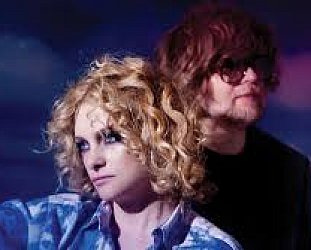

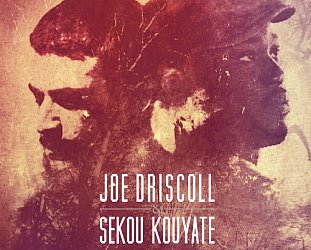
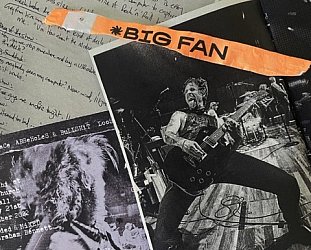
post a comment